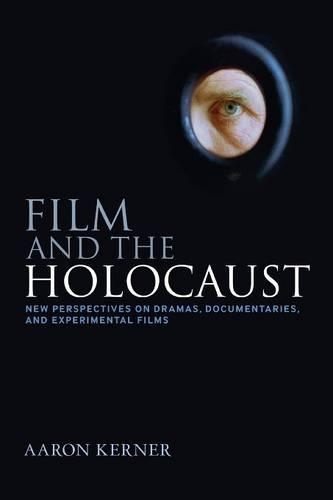
Film and the Holocaust: New Perspectives on Dramas, Documentaries, and Experimental Films
(Paperback)
Available Formats
Publishing Details
Film and the Holocaust: New Perspectives on Dramas, Documentaries, and Experimental Films
By (Author) Aaron Kerner
Continuum Publishing Corporation
Continuum Publishing Corporation
7th July 2011
United States
Classifications
Professional and Scholarly
Non Fiction
The Holocaust
Second World War
791.43658
Physical Properties
Paperback
352
520g
Description
When representing the Holocaust, the slightest hint of narrative embellishment strikes contemporary audiences as somehow a violation against those who suffered under the Nazis. This anxiety is, at least in part, rooted in Theodor Adorno's dictum that "To write poetry after Auschwitz is barbaric." And despite the fact that he later reversed his position, the conservative opposition to all "artistic" representations of the Holocaust remains powerful, leading to the insistent demand that it be represented, as it really was. And yet, whether it's the girl in the red dress or a German soldier belting out Bach on a piano during the purge of the ghetto in Schindler's List, or the use of tracking shots in the documentaries Shoah and Night and Fog, all genres invent or otherwise embellish the narrative to locate meaning in an event that we commonly refer to as "unimaginable." This wide-ranging book surveys and discusses the ways in which the Holocaust has been represented in cinema, covering a deep cross-section of both national cinemas and genres.
Reviews
At last--a wide-ranging, richly structured, incisive study of how this horrific event appears and reappears in dramatic, comedic, exploitative, pornographic, documentary, and poetic representations. No one has surveyed the full range of Holocaust material like this before. Kerner brings stunning clarity to the most basic issues involved in representing catastrophe. Bill Nichols, Professor of Cinema at San Francisco State University, and author of Engaging Cinema, Introduction to Documentary (2nd edition) and Representing Reality.
The unprecedented catastrophe of the Holocaust has thrown into question the ability of the cinema to adequately represent such an event in all its enormity and complexity. Yet this crisis of representation has done little to stem the flood of "Holocaust films" that has appeared over the last five decades. Scrupulously researched and theoretically informed, Film and The Holocaust is the first study that sets aside the high/low debates about authenticity, accessibility or moral value, to closely examine the myriad cinematic forms through which the Holocaust is represented. From the Shoah-business of the Hollywood blockbuster to the intimate and formally challenging explorations of the Avant-Garde, Kerner discusses all forms with equal authority. Film and The Holocaust is an essential introduction to the breadth of films and the wide range of scholarship of what has become a major cinematic genre. Jeffrey Skoller, Film Studies at UC Berkeley, and author of Shadows, Specters, Shards: Making History in Avant-Garde Film
Article in The Jewish Telegraph
Author Bio
Aaron Kerner is an Associate Professor in the Cinema Department at San Francisco State University. His curatorial and research work examines the problems of representations, exploring the difficulty of representing catastrophic events and the uneasy transfiguration of history and memory into narrative form.
